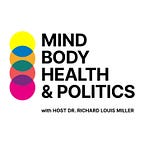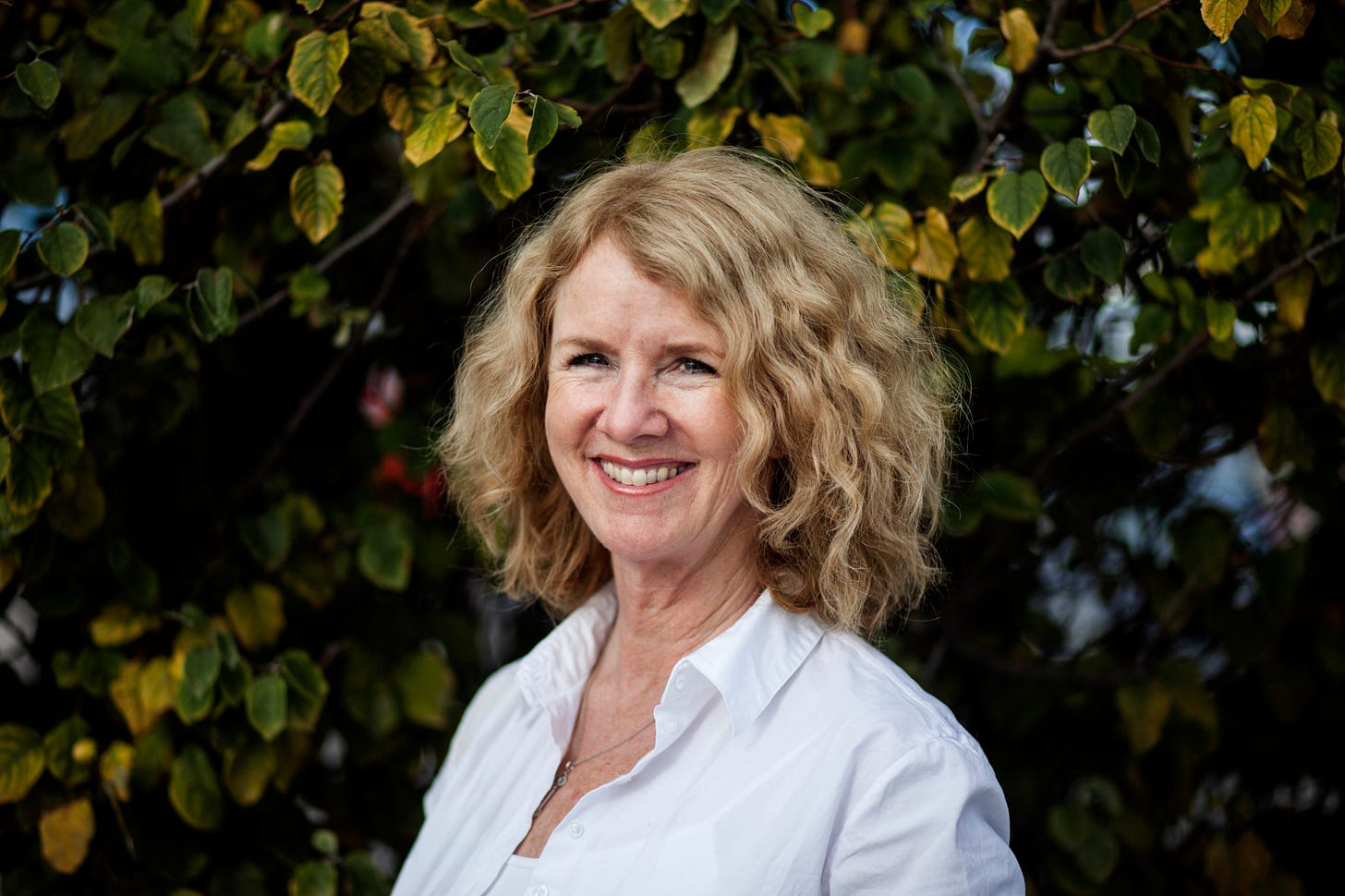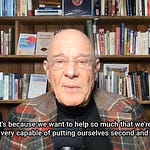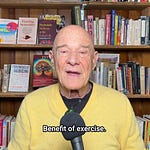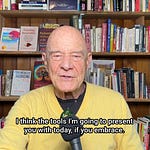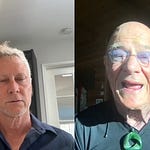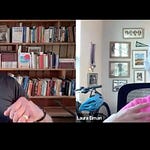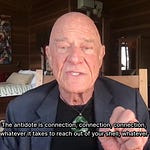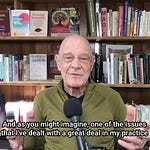Dear Listener,
I'm excited to share my recent interview with Marian Goodell, CEO of Burning Man Project – an organization unlike any other.
In 1986 I attended a small beach gathering that grew into today's 80,000 person event.
In the Bible, the figure of Miriam helped free Jews from slavery in Egypt. Today Marian has brought people into the desert to find freedom at Burning Man.
Unlike traditional for-profit events, the Burning Man festival operates as a gift economy focused on radical inclusion, creative expression, and environmental stewardship. Marian joined the founders in 1997 and now leads their global efforts to spread the festival's ethos worldwide. If every CEO took her approach of people and planet over profits, the world would be far richer.
In our conversation, Marian traces Burning Man's origins from that small gathering of friends on a San Francisco beach. Guided by founder Larry Harvey's Ten Principles, it grew into an annual temporary metropolis and cultural movement. She explains how these principles now enable 80,000 people to self-organize, express themselves freely, gift unconditionally, and “leave no trace” in the Nevada desert.
Burning Man demonstrates an alternative model for building community, one we need more of. While apolitical, its principles have social ripple effects - seeding humanistic values, care for our planet, and a culture of participation and self-expression. I see this as the future for evolving humanity's potential.
Marian shares how Burning Man faces tensions in spreading its ethos, wanting to inspire broader change without being prescriptive. Its principles aim not to impose, but plant ideals that participants integrate into their lives. This speaks to the need for a shift in mindset more than a new political movement or ideology.
I met Marian in person at Wilbur Hot Springs and we connected deeply. I know for a fact that she lives the principles, leading by example.
I know you'll be as inspired as I was hearing Marian speak about Burning Man's principles and our capacity for creating community.
Please listen and subscribe for more conversations at the intersection of science, spirit and society.
Golden light,
Dr. Richard Louis Miller
Show notes:
Burning Man's humble beginnings. 2:51
Goodell traces Burning Man's start to 20 people gathering on a San Francisco beach.
It began as a solstice bonfire ritual by the Cacophony Society.
The event moved to Nevada's Black Rock Desert in 1990 with 80 attendees.
Larry Harvey & the 10 Principles. 5:20
In 2004, Harvey drafted the 10 Principles to codify Burning Man's ethos as it spread.
The Principles evolved from his reflections on 20 years of learnings.
Goodell notes Radical Inclusion comes first as a cornerstone.
Applying Radical Self-Reliance. 23:51
Self-reliance means providing your own survival needs.
But it interplays with communal effort and civic responsibility.
It's not radical selfishness - you must also ensure community welfare.
The future of Leave No Trace. 44:23
Leaving no trace began pragmatically - avoiding cleanup work.
Combined with self-reliance and communal effort, it succeeded.
With 80,000 people packing out waste, it's a massive accomplishment.
Navigating political implications. 49:33
Goodell discusses why Burning Man doesn't take political stances.
The goal is wide reach through neutral principles individuals apply.
They aim to inspire change without being prescriptive.
Links and references:
The Gift: Creativity and the Artist in the Modern World by Lewis Hyde
NOTE: The podcast is always freely available thanks to our paid subscribers. Please share this post to show your support for transparency. The following transcript distills the key points from this show into a condensed form. It is meant as a reference - listen to the full episode for an accurate rendition of the conversation.
Transcript
Dr. Richard Miller: Welcome to Mind Body Health and Politics, Marian.
Marian Goodell: Thank you. Thank you very much, Richard. I'm really happy to be here.
Dr. Miller: What interests me is Burning Man as a transformational tribal gathering, part of a history of such events. Does that fit your perspective?
Marian Goodell: Yes, absolutely. I think it grew in a natural way, as many tribal gatherings did, starting, like you said, with 20 people on a beach. And that resonated with the gatherers. And that is actually how Burning Man started. The ritual of gathering together, particularly if the tribe is open to adding others seeking connectedness and openness, it replicated very quickly.
Radical Inclusion
Dr. Richard Miller: As I understand it, the founders of Burning Man created 10 principles early on, similar to the 10 commandments. It's interesting that both have the same number. The first principle is called "radical inclusion," which is what you're discussing now. Can you tell us more about radical inclusion and what it means to Marian?
Marian Goodell: From a historical standpoint, when we first felt the need to codify or write down what was happening at Burning Man, there wasn't really a necessity to define it in such a way until the culture started to replicate itself. People in other parts of the world wanted to know how to do it, how to follow what we were doing. At the time, we wrote blog posts and had a newsletter called the Jackrabbit.
Larry was the philosopher, so I kept asking him if he could articulate for the wider world what principles we wanted people to adhere to. He took a vacation to Mazatlan to visit a friend. He said every day he went to the town square, sat, and wrote - reflecting on what were the common threads over the years since 1986. This was in 2004, so nearly 20 years had passed. When he returned, he came back to the leadership group with nine principles. We teased him, saying if he had gotten to nine, why not have ten? He went away again and returned the next day with the tenth principle - immediacy.
The order of the principles wasn't deliberate, but emerged through the order he'd jotted them down. Radical inclusion was the first thing I mentioned because I think it's foundational to Burning Man culture. Though many of these principles exist in different forms elsewhere, we believe all ten principles work together. Radical inclusion is meant to encourage welcoming everyone to participate.
As people have worked to replicate our culture worldwide, they've struggled with how to apply radical inclusion. What if people deviate from community norms, break rules, or have ill intent? Our goal was for people to feel welcome at the table. If they don't follow cultural norms, they may be asked to modify their behavior or leave the community. But first, we look to include and welcome people into the conversation.
Dr. Miller: So if I understand correctly, exclusions are based on behavior, not appearance, religion, beliefs, or politics. It's about how people treat others in the community, right?


